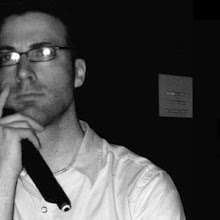In defense of Jim Gray
It's no secret that ESPN reporter Jim Gray is a controversial journalist. Most sports fans will tell you he was not the most popular of people in 1999 after he asked Pete Rose, at a very public ceremony honoring the baseball player, if Rose would confess to betting on the sport. I'll admit that at the time, I didn't agree with Gray's decision, but even then I admired his ability to ask the tough questions. And with 20/20 hindsight, Gray appears to be more in the right than Rose, who later admitted to baseball bets.
Fast forward to this week, when I was set to jump all over the eight-time Emmy winner for reporting that he had spoken on the phone with Philadelphia 76ers point guard Allen Iverson, only to find out later that that person was an Iverson imposter. On the surface, that kind of reporting seems sloppy and inexcusable.
But what I find interesting about the Philadelphia Inquirer's take on the situation is what's reported in the 10th -- 10th! -- paragraph of this story:
"Gray said he received the phone number from Iverson last month. The only problem was that it wasn't Iverson's number, according to a source familiar with the situation."
Wow, so many things to say here if those facts are true:
1. From the public's perspective, the story here is that Gray messed up. But as a reporter, I am more peeved at Iverson if he intentionally passed along fake digits. If that's true, Iverson lied to him and deliberately screwed him over. Imagine the controversy that would develop if Gray lied about how to reach him for comment if ESPN were going to broadcast a damning story about Iverson; Gray might have been fired.
2. Of course, a reporter should be sure he or she is talking to the source in question, but I'm surprised this alleged deception hasn't happened more often. I interviewed stand-up comedian Kevin Meaney last week for Suburbarazzi, and while I contacted his publicist and spoke with a guy on the phone who sounded just like Meaney and knew very specific details about his career, I could never be 100 percent sure that it was him without conducting the interview in person. I'm certainly not implying that Meaney or his publicist would be deceptive; all I'm saying is that one never truly knows who's on the other end of the phone. For sure, this serves as a journalistic wake-up call, no pun intended.
3. If the Inquirer was confident enough to publish the possibility that the phone number was wrong, why does the newspaper place Gray's reasoning so low in the story? For the first nine paragraphs, it appears that Gray doesn't have a legitimate reason for what he did, but suddenly in Paragraph 10, the reader hears his side of the story. This information should appear far earlier in the story, at least somewhere in the first five paragraphs. Poor editorial judgment.


0 comments:
Post a Comment